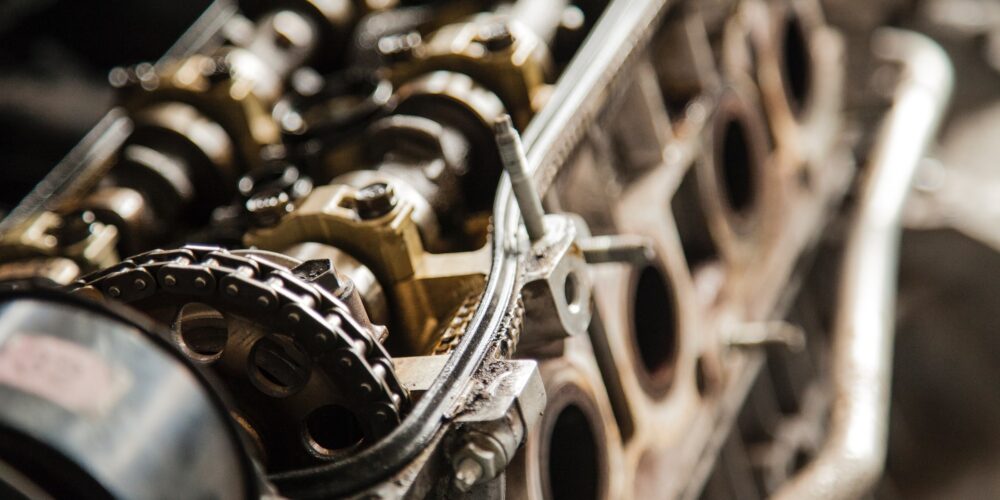Any car can only work properly when all of it’s key parts are in good working order, and the head gasket is one of the most important. It plays a critical role in the combustion process that gets the engine started and your car out on the road. Without it, the engine wouldn’t be able to start effectively and could lead to bigger, more costly engine repairs in the future. When the head gasket goes wrong, it can be a daunting prospect – however, when it’s dealt with in good time, you could prevent any lasting or irreparable engine damage. We’ve put together this guide to help you notice the signs of a problem, understand what causes it and how they can be fixed.
What Is A Head Gasket?
A vehicle’s engine is divided into two parts – the cylinder block and the cylinder head. The head gasket sits between these two parts, sealing them to prevent leaks of oil and coolant between compression and combustion chambers of the engine. If leaks were to occur, the results could be disastrous and even lead to complete engine failure. Head gaskets are designed to last the lifetime of the car and on the occasions where it fails, different levels of damage can occur depending on where on the gasket the failure has happened. Small failures can simply result in coolant loss over time or yellow gunk build up, but failures around crucial points can even lead to steam, overheating engines and engine failure.
The Signs Something Is Wrong
To catch the issue early before irreparable damage can occur, there are a few things you can keep an eye out for. One, of course, is the check engine light, but if this fails, you should also look out for:
- Thick white smoke billowing out of the exhaust
- Poor engine performance
- Rough idling noises
- Milky-coloured engine oil
- Yellow gunk in the oil
- Overheating engine
- Bubbles in the radiator
- Obvious oil or coolant leaks, e.g. pooling liquid on the floor under your vehicle
If you experience any of the above, it’s important to get your vehicle booked in for repair immediately. Don’t drive your vehicle before it’s checked and repaired by a specialist mechanic. While you can technically drive with a blown head gasket, the damage is impossible to assess without looking at it and even a small journey could be the difference between a part replacement, or an entire engine replacement or rebuild.
What Causes Head Gasket Failure?
There are a number of reasons a head gasket can fail or blow, and each one may lead to different areas of the gasket becoming damaged. The most common is an overheating engine, but some of the other common reasons include:
- Overheating engine – when the engine overheats, the cylinder head expands and can crush the head gasket. Engine overheating is usually caused by low coolant levels, faulty thermostats or blocked coolant passages. You should have any overheating checked as soon as possible to prevent a blown gasket.
- Issues with ignition – if the head gasket is mildly damaged or slightly affected, it could lead to poor start-up of your vehicle. If the gasket fails, the right level of compression can’t be reached and it can lead to leaks of coolant or oil that can cause misfiring of the cylinders and ultimately, further damage to the head gasket.
- Poor head gasket quality – if you have a bad quality head gasket or a faulty manufacturer piece, this could give you years of performance before the wear and tear gets too much and the gasket becomes damaged.
- Poor installation – if you’ve had a gasket replacement before, a poor installation by an underqualified mechanic could lead to problems in the future. Bolts that are too loose or too tight can either cause leaks or cause the gasket to become crushed.
How Can It Be Fixed?
If you think there could be a problem with your head gasket, your best bet is to book your vehicle in for recovery and repair. Our team here at Service4Service will run full diagnostic tests and inspections to find the cause of the problem and the level of damage already done. In some cases, the fix can be as easy as a replacement part. We will simply replace the blown gasket with a new, manufacturer-approved part and repair any additional damage to get you out on the road. If the damage is more serious, it could require replacement cylinder heads, engine rebuilds or even engine replacement if not dealt with when the problem first arises.
If you aren’t sure about the severity of the issue or you want to book your vehicle in with our team for repair, we are on hand to help. Simply get in touch to find out more or to book your car in with us, today.

